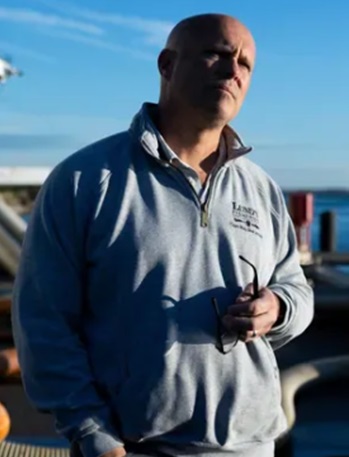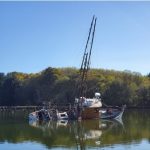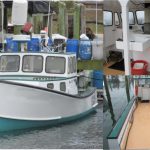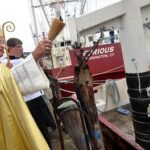Tag Archives: Loper Bright Enterprises v. Raimondo
U.S. fisheries could be devastated by Supreme Court’s ending the Chevron doctrine
 Loper Bright Enterprises v. Raimondo the Supreme Court’s late June decision on regulatory agency authority, heralds the much-anticipated end of the 40-year-old Chevron doctrine, which required courts to defer to federal agencies when interpreting laws. No doubt, much will be written in the coming weeks about the impacts of Chevron’s demise on the administrative state. But, at its core, Loper Bright is a case about fisheries. What then are the implications of this decision for both the fishermen and the healthy fisheries of the United States? This case comes at a critical time for U.S. fisheries. Historically, the U.S. has seen many notable economically and culturally ruinous fisheries collapse — from the Atlantic cod collapse of the 1990s to the current collapse of Pacific salmon. The Magnuson-Stevens Act created the framework for the protection of U.S. fisheries and has been moderately successful since its enactment. more, >>CLICK TO READ<< 09:21
Loper Bright Enterprises v. Raimondo the Supreme Court’s late June decision on regulatory agency authority, heralds the much-anticipated end of the 40-year-old Chevron doctrine, which required courts to defer to federal agencies when interpreting laws. No doubt, much will be written in the coming weeks about the impacts of Chevron’s demise on the administrative state. But, at its core, Loper Bright is a case about fisheries. What then are the implications of this decision for both the fishermen and the healthy fisheries of the United States? This case comes at a critical time for U.S. fisheries. Historically, the U.S. has seen many notable economically and culturally ruinous fisheries collapse — from the Atlantic cod collapse of the 1990s to the current collapse of Pacific salmon. The Magnuson-Stevens Act created the framework for the protection of U.S. fisheries and has been moderately successful since its enactment. more, >>CLICK TO READ<< 09:21
How the Supreme Court rescued my NJ fishing firm that bureaucrats almost sank
 The Supreme Court just sided with my New Jersey-based, family-owned fishing business, and may have even saved it. That’s the reality of the court’s June 28 decision in a case called Loper Bright Enterprises v. Raimondo, which overturned the “Chevron doctrine” that gave unchecked power to federal bureaucrats. Yet the media reaction hasn’t focused on what the ruling means for regular people and job creators like me. The pundits say that Washington, DC, will descend into chaos because the justices stopped unelected and unaccountable bureaucrats from deciding for themselves what’s “reasonable” under federal law. But as I can attest, that power quickly leads to abuse. The Supreme Court has protected the American people from regulators run amok, and from a Congress that won’t do its job. I was one of the small business owners who sued the federal government in this case. By Wayne Reichle, more, >>CLICK TO READ<< 21:20
The Supreme Court just sided with my New Jersey-based, family-owned fishing business, and may have even saved it. That’s the reality of the court’s June 28 decision in a case called Loper Bright Enterprises v. Raimondo, which overturned the “Chevron doctrine” that gave unchecked power to federal bureaucrats. Yet the media reaction hasn’t focused on what the ruling means for regular people and job creators like me. The pundits say that Washington, DC, will descend into chaos because the justices stopped unelected and unaccountable bureaucrats from deciding for themselves what’s “reasonable” under federal law. But as I can attest, that power quickly leads to abuse. The Supreme Court has protected the American people from regulators run amok, and from a Congress that won’t do its job. I was one of the small business owners who sued the federal government in this case. By Wayne Reichle, more, >>CLICK TO READ<< 21:20
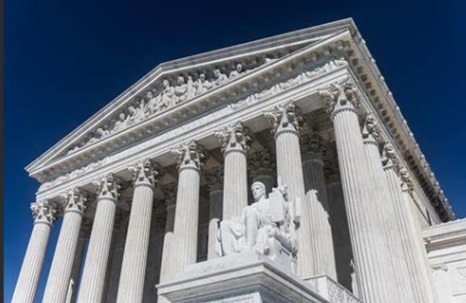
Supreme Court Strips Power from Federal Agencies—Overturning Decades-Old Precedent
The Supreme Court overturned a landmark ruling Friday that gave widespread power to federal agencies, a seismic ruling that has the power to upend how the federal government operates—and delivers a win to conservative groups who long wanted to see the precedent overturned. “Loper Bright Enterprises v. Raimondo” and “Relentless v. Chamber of Commerce” are two linked disputes, both brought by herring fishermen who opposed a federal policy requiring them to pay $700 per day to carry federal monitors on their vessels. The cases more broadly asked the court to overturn “Chevron v. Natural Resources Defense Council,” a landmark 1984 ruling that gave federal agencies broad power to enact regulations by arguing courts should usually defer to agency staff—a precedent that high-profile figures on the right have long wanted to see struck down. more, >>CLICK TO READ<< 10:29
Cape May fishermen at center of major U.S. Supreme Court case
On Wednesday, the justices heard testimony in Loper Bright Enterprises v. Raimondo. The justices are deciding whether to uphold or overrule the four-decades old Chevron v. Natural Resources Defense Council decision. The justices heard three-and-a-half hours of oral argument this week. Multiple media outlets reported the justices asked questions indicating that the Chevron doctrine is unlikely to remain fully intact. The fishermen are challenging the National Marine Fisheries Service for requiring the herring industry to take on the cost of paying observers. Who is supporting the fisherman and why? The fishermen are represented by the Cause of Action Institute and New Civil Liberties Alliance. Groups such as the Cato Institute, Christian Employers Alliance, and members of Congress such as Sen. Ted Cruz and Speaker of the House, Mike Johnson, have filed briefs in support of the fishermen. more, >>click to read<< 12:15
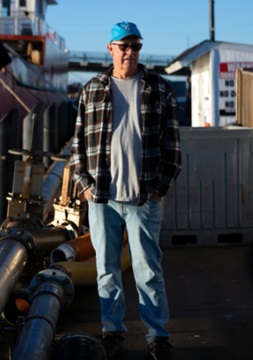
A Small Fish and an Uncollected Fee Add Up to Big-Government Challenge at the Supreme Court
The case could undercut the power of federal regulators on major issues including air pollution and securities fraud. It also exemplifies the way many of the high court’s biggest fights are born these days — driven less by the practical aims of the litigants than by the ideological vision of the interest groups behind the suits. The fight concerns a federal requirement that some herring boats host government-approved observers aboard their vessels and cover an estimated $710 daily cost. The fisherman say that would be an onerous burden on their family-owned businesses — so onerous they are suing even though the fee is on hold and might never kick in. “We have not had to pay. We’re just nervous about this hanging over our head,” said Bill Bright in an interview in Cape May, New Jersey, where he runs his two-vessel fishing business. “So we feel that we need to solve this problem now.” Photos, >>click to read<< 11:14
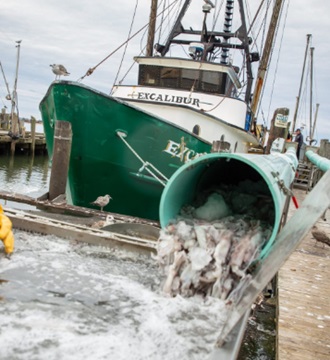
Landmark Legal Battle: Fishermen Challenge Regulatory Overreach Impacting Livelihoods
In a pivotal move, the Supreme Court has accepted a second challenge to the long-standing legal doctrine known as “Chevron deference.” This doctrine, born from a 1984 ruling, grants federal agencies substantial authority in formulating rules and regulations. The case, Relentless Inc. v U.S. Department of Commerce, represents a crucial juncture for Rhode Island fishermen who, along with those in the Loper Bright Enterprises v. Raimondo case, are fervently contesting a federal rule that mandates them to bear the financial burden of federal observers on their boats. >>click to read<< 12:23
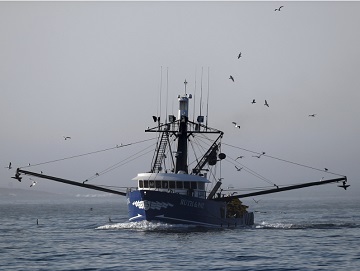
Courts threaten to sink federal fishery monitoring
NOAA suffered a major blow in February when a three-judge panel of the 5th U.S. Circuit Court of Appeals in Louisiana threw out a rule that would have required charter boats in the Gulf of Mexico to be equipped with electronic monitors to report fish catches. Fishermen complained that the devices would cost them as much as $3,000 per boat. And the agency may be poised for an even bigger setback from the Supreme Court. Justices last month said they would take up a case that could decide whether NOAA has the legal authority to force New England herring fishermen to hire third-party contractors to monitor their fishing at a cost of up to $700 per day. >click to read< 13:55






